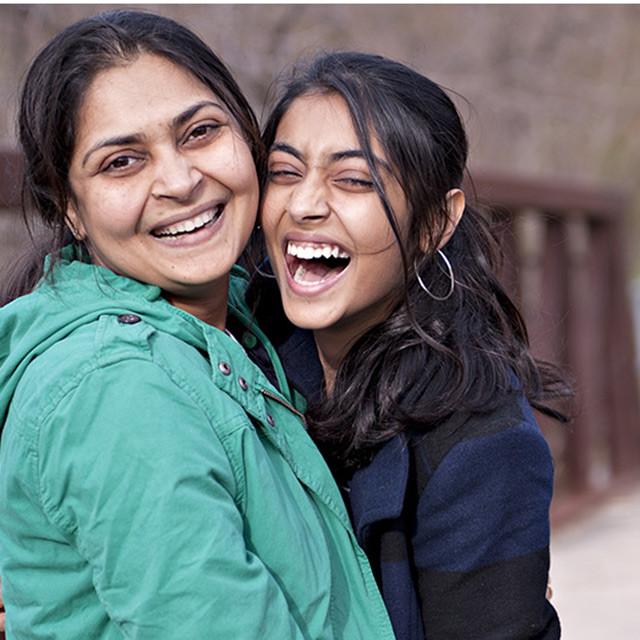Helping kids and teens navigate their digital lives safely is more important than ever.
Social media has its benefits, such as helping us stay connected to people who don’t live near us, allowing us to participate in hobby groups or providing us inspiration. But it also has plenty of downsides, including that it can be problematic for our kids’ mental health.
“We’re seeing increased rates of anxiety, depression, insomnia, eating disorders and suicidality,” said Dr. Katie Spencer, a child and adolescent psychiatrist at Monroe Carell Jr. Children’s Hospital at Vanderbilt. These increased rates may stem from many factors, but social media and phone use have been linked to concerns such as worsened body image in teens, Spencer said.
Many of us didn’t grow up with social media and are navigating use in children without having used it as children ourselves. Nowadays, 95% of those ages 13 to 17 are using some form of social media, according to a Surgeon General’s Advisory from 2023. So how can parents and caregivers set healthy boundaries with kids around platform use to protect their mental health?
Concerns regarding social media use in kids
Social media use can take children away from other more beneficial ways to spend their free time. “Children are spending less time in creative and outdoor activities that contribute to learning and growth and development,” Spencer said.
“We’re seeing families sitting at dinner tables and all of them are on their phones versus communicating. This changes relationships.”
Likewise, they’re often experiencing less connectedness with family members and friends. “We’re seeing families sitting at dinner tables and all of them are on their phones versus communicating. This changes relationships.”
Constant notification buzzes or dings as well as late-night screen use can also impact sleep. “Social media can be a sleep stealer,” Spencer said. “Inadequate sleep can cause concerns with both physical and mental health. Teens fear missing out, which makes it difficult for them to set aside their social media platforms.” Spencer recommends that families remove access to devices through the night.
She shared two recent examples of teen patients having functional problems resulting from their overuse of social media. They were no longer participating in school or physical activities.
“When asked what they do all day, since they were home,” she said, “they said they were just sitting or lying around updating their platforms, editing their videos for social media or just viewing YouTube all day. That is incredibly unhealthy.” Other children have harmed themselves, attempted suicide, reported suicidal thoughts or reported cyberbullying.
How parents can navigate their kids’ social media use
When should kids get access to social media? The appropriate age is likely different from child to child.
“Ideally we would wait to give access until we know our child is developmentally able to understand the potential risks and concerns associated with social media, such as cyberbullying and access to inappropriate content,” Spencer explained.
Some research recommends that social media activities shouldn’t begin until a child is at least 16. However, waiting even longer may be better because teen brains are still developing, Spencer said.
“It’s important for children to have their parents support safe use before they are completely independent.”
Whenever a child first gains access to social media, they shouldn’t have absolute freedom with it. “It’s important for children to have their parents support safe use before they are completely independent,” Spencer said. She recommends a variety of practices for parents to guide teen phone use:
- Implement device controls to limit screen time in general, limit content access and monitor for key risk phrases. Some devices will require parental permission or send a parent a notification any time a new app is downloaded. The parent can then either approve the use or not.
- Know your child’s social media passwords and the passcodes to their devices so you can periodically screen their feeds and private messages.
- Be “friends” with or follow your kids on their various platforms to see what they are posting.
- Keep phones outside of the bedroom so that kids aren’t tempted to view notifications or spend all night scrolling.
- Model moderation in your own social media use.
“Be honest with your teen about your family’s rules regarding phone and social media use and reasons why you monitor,” Spencer said. “Discuss risks and what they should look out for.”

Finding help
If your child is struggling, the next best step is to talk with your pediatrician, who can assess and make any needed referrals. Monroe Carell Jr. Children’s Hospital at Vanderbilt’s Pediatric Primary Care clinics ensure quality care for your child as close to home as possible, with locations throughout Middle Tennessee.




